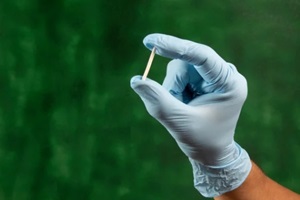 Hormonal contraceptives go beyond just preventing pregnancy. When chosen correctly, these methods offer women multiple health benefits that lead to an improved quality of life.
Hormonal contraceptives go beyond just preventing pregnancy. When chosen correctly, these methods offer women multiple health benefits that lead to an improved quality of life.
From lighter, predictable periods to protection against certain cancers, hormonal contraception has a lot to offer.
Lighter, More Regular Periods
One of the most appreciated benefits of hormonal contraception is its ability to tame periods. The hormones stabilize the uterine lining, leading to lighter bleeding every month.
For many, this leads to a significant reduction in the amount of blood they lose during menstruation.
Lighter periods mean less chance of iron deficiency anemia, which causes unpleasant symptoms such as weakness, dizziness, and shortness of breath.
Additionally, hormonal contraceptives promote a more regular menstrual cycle. While some experience unpredictable bleeding when first starting hormonal birth control, periods typically become much more predictable within 2-3 months of consistent use.
Less Menstrual Pain
At some point, a large proportion of menstruating women deal with painful cramps, a condition called dysmenorrhea.
For some, the pain is mild, but for others, it is severe enough to significantly negatively affect their day-to-day activities for a few days every month. The prostaglandins released when the uterus contracts are to blame for those crippling cramps and lower back pain.
The hormones in birth control quiet prostaglandin production. This prevents the severe uterine contractions that trigger intense cramping and pain. As a result, most women experience less painful periods within three months of starting hormonal contraceptives.
Fewer Premenstrual Symptoms
In addition to period problems, hormonal contraceptives can improve other issues tied to the menstrual cycle. The fluctuations in estrogen and progesterone do not only affect the uterus.
For many, these swings cause premenstrual syndrome (PMS). Days to weeks before your period, you may feel bloated, weary, and emotionally sensitive.
By regulating hormones throughout the cycle, birth control pills, patches, rings, and more can smooth out those surges and plunges. This keeps hormones at more consistent levels and alleviates PMS symptoms.
Those with moderate to severe premenstrual dysphoric disorder (PMDD) may find hormonal contraception particularly helpful for controlling mood swings and irritability.
The Option to Skip Periods
While hormonal contraceptives regulate the menstrual cycle for most users, taking it a step further is also an option. It is safe to skip the placebo pills or hormonal-free week built into most hormonal birth control regimens.
This allows you to avoid periods altogether. Without breaks or placeholders, extended use or continuous dosing works by taking active hormone pills, changing patches, or inserting new rings consecutively.
After making it through the initial months of unpredictable bleeding, you can determine your ideal frequency of withdrawal bleeding.
Reduced Cancer Risk
 An important yet lesser-known benefit of hormonal contraception is its protective effect against certain cancers. By keeping estrogen levels low and steady, it may help prevent the development of cancer-causing cells.
An important yet lesser-known benefit of hormonal contraception is its protective effect against certain cancers. By keeping estrogen levels low and steady, it may help prevent the development of cancer-causing cells.
Those who use hormonal contraceptives cut their risk of developing ovarian and endometrial cancers significantly compared to women who have never touched them.
This protective benefit strengthens the longer you use hormonal birth control. However, it may take up to 10 years of use to realize the full cancer risk reduction.
Less Pelvic Inflammatory Disease
Pelvic inflammatory disease, or PID, is an infection that occurs in female reproductive organs, often resulting from untreated sexually transmitted infections, including gonorrhea and chlamydia. In addition to pain and fever, PID can do permanent damage.
Scarring and blocked fallopian tubes increase the risk of infertility, chronic pain, and ectopic pregnancy. By thickening cervical mucus, hormonal contraceptives help prevent infectious bacteria from ascending into the uterus and pelvis.
Clearer Skin
For those plagued with pimples, oily skin, and persistent acne, hormonal birth control may offer some relief. Some people notice an improvement in their complexion within six months of starting contraceptives.
How exactly it works is not fully understood, but it is believed to help by decreasing oil production and reducing inflammation.
While contraceptives alone usually will not clear up severe nodular acne, they can be helpful alongside acne treatments. Patience is required, though, as it could take a few months.
Stronger Bones
Estrogen helps build and maintain healthy bones during youth and adolescence. During adulthood, it helps keep bone mineral density at a healthy level.
It enables the body to use calcium, a key mineral for bone health, effectively. Most hormonal contraceptives contain estrogen.
This small daily dose is just enough to maintain bone density in adults up to menopause. Therefore, hormonal contraception helps prevent bone loss and osteoporosis risk of low estrogen levels in aging women.
Relief from Endometriosis
Endometriosis, a condition causing tissue similar to the endometrium to grow outside the uterus, affects over 6 million women. Along with severe menstrual cramps, it also causes pain in between periods.
Suppressing estrogen production and preventing ovulation helps restrict endometrial tissue growth. For this reason, hormonal contraceptives often provide relief from endometriosis symptoms.
Return of Fertility
An important consideration before committing to longer-term hormonal contraceptives is understanding how they affect future fertility after stopping.
While every woman responds differently, most return to fertility within 1-3 months after discontinuing shorter-acting methods such as the pill, patch, or ring.
 With the shot or implant, it may take up to 6 months for fertility to fully return. It is essential to plan accordingly if pregnancy is desired soon after stopping.
With the shot or implant, it may take up to 6 months for fertility to fully return. It is essential to plan accordingly if pregnancy is desired soon after stopping.
Have an open conversation with your gynecologist regarding your fertility plans and get personalized guidance.
Choose the Best Birth Control for You with Help from Raleigh Gynecology & Wellness
With all the health benefits hormonal contraceptives offer beyond pregnancy prevention, it is worth exploring if it may be a good option for you.
Every woman has unique needs, risks, and priorities. Discussing the benefits and drawbacks with your gynecologist is important to determine if hormonal birth control aligns with your health and wellness plan.
When it comes to understanding a multifaceted issue such as hormonal contraception, rely on the expertise of Raleigh Gynecology & Wellness.
Our team of healthcare experts takes time to understand your health history, goals, and preferences to ensure you make the right choice for your needs. Contact us today at (919) 636-6670 or make an appointment online.
